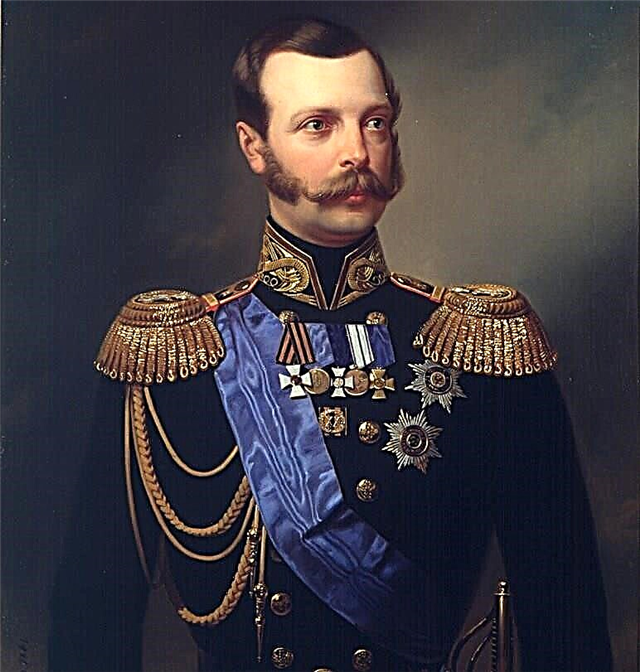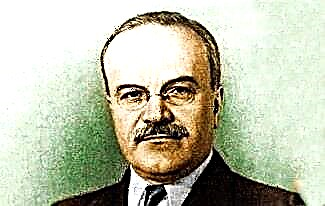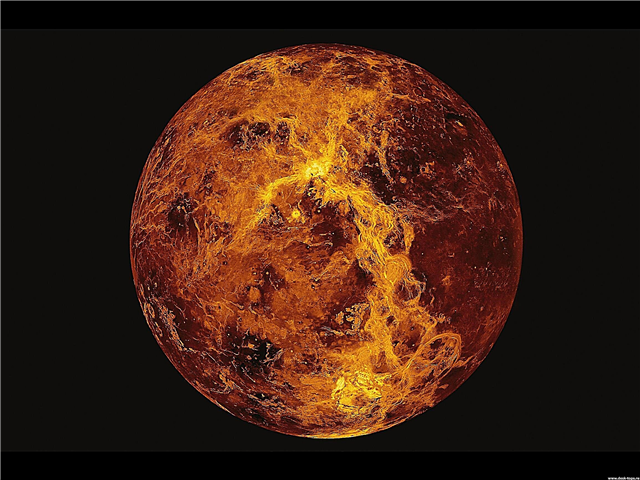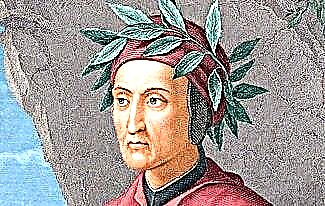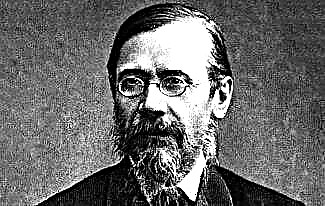Pericles (c. BC) - Athenian statesman, one of the "founding fathers" of Athenian democracy, a well-known orator, strategist and military leader.
There are many interesting facts in the biography of Pericles, which we will tell about in this article.
So, before you is a short biography of Pericles.

Biography of Pericles
Pericles was born around 494 BC. in Athens. He grew up in an aristocratic family. His father, Xanthippus, was a prominent military and political figure who led the Alkmeonid group. The mother of the future politician was Agarista, who raised two more children besides him.
Childhood and youth
Childhood Pericles fell on turbulent times associated with the aggravation of the Persian threat and the confrontation of political groups. The situation was also aggravated by the popular parties of Themistocles, who persecuted dedicated families and noble families.
This led to the fact that initially Pericles' uncle and later his father were expelled from the city. All these events seriously influenced the outlook of the future commander.
It is believed that Pericles received a very superficial education. He was waiting for the return of his father, who was allowed to return home earlier. This happened in 480 BC. after the invasion of the Persian king Xerxes, as a result of which all the exiles were early returned home.
An interesting fact is that after returning to his native Athens, Xanthippus was immediately elected a strategist. During this time biography Pericles showed a great interest in politics.
However, it was not easy for the young man to reach great heights in this area, due to his youth, belonging to the "accursed" family of the Alcmeonids and outward resemblance to his great-grandfather Peisistratus, who was once famous for tyranny. All this did not please his compatriots, who hated tyranny.
Career
After the death of his father in 473/472 BC. the Alcmeonid group was led by the young Pericles. By that time, he had already managed to achieve some success in military service. Although he himself grew up in a family of aristocrats, the guy was a supporter of democracy.
In this regard, Pericles became the oppositionist of the aristocrat Cimon. Later, the Greeks expelled Cimon from Athens, which was only on his hands. He was on good terms with the author of the Areopagus reforms, named Ephialtes, and supported the transfer of power to the popular assembly.

Every year Pericles gained more and more prestige among the people, becoming one of the most influential political figures of the ancient polis. He was a supporter of the war with Sparta, as a result of which he became a strategist.
Despite the fact that the Athenians suffered many defeats in an unequal military conflict, Pericles did not lose the support of his citizens. In addition, he was supported by various scientists, thinkers, poets and other influential persons.
All this served as the beginning of the flowering of ancient Greek culture associated with the name of the famous sculptor and architect Phidias, who became the author of a number of sculptures exhibited in the Parthenon. Pericles restored the temples, instructing Phidias to oversee their construction.
In Athens, the Greek carried out a number of important reforms, which represented a significant stage in the democratization of the polis. He called himself the spokesman for the interests of all citizens, in contrast to his main opponent Thucydides, the successor of Cimon, who relied exclusively on the aristocracy.
Having achieved the expulsion of Thucydides, Pericles became the central figure of the polis. He raised the sea power in the state, transformed the city streets, and also gave the order to build the Propylaea, the statue of Athena, the temple of the god Hephaestus and the Odeon, where singing and musical competitions were held.
At this time in his biography, Pericles continued the policy of Solon, which is why Athens reached the highest stage of development, becoming the largest economic, political and cultural center of the Hellenic world. This period is now called the "Pericles Age".

As a result, the man earned the respect of his compatriots, who received more rights and freedoms, and also improved their well-being. The last 10 years in power have especially revealed oratorical talent in Pericles.
The ruler made powerful speeches that were delivered on the fields of the Peloponnesian War. The Greeks managed to successfully resist the Spartans, but with the onset of the epidemic, the situation changed, redrawing all the plans of the strategist.
As a result, Pericles began to lose his authority in society, and over time was accused of corruption and other serious violations. And yet, for many centuries, his name was associated with unprecedented achievements and reforms.
Personal life
Pericles' first wife was a devout girl named Telesippa, but over time, their feelings for each other cooled. In this marriage, 2 sons were born - Paral and Xantippus. Later, the man divorced her and even found a new husband for her.
Then Pericles cohabited with Aspassia, who was from Miletus. The lovers could not get married because Aspassia was not an Athenian. Soon they had a boy named Pericles, named after his father.
An interesting fact is that for Pericles the younger, the ruler achieved, as an exception, Athenian citizenship, contrary to the law, of which he himself was the author.
Pericles was a man with high intellectual abilities, who did not believe in omens and tried to find an explanation for everything through logical thinking. In addition, he was a very devout person, as evidenced by some cases from his biography.
Death
During the outbreak of the epidemic, both Pericles' sons from their first brother and a sister died. The death of relatives seriously crippled his health. Pericles died in 429 BC. e. He was probably one of the victims of the epidemic.
Pericles Photos








